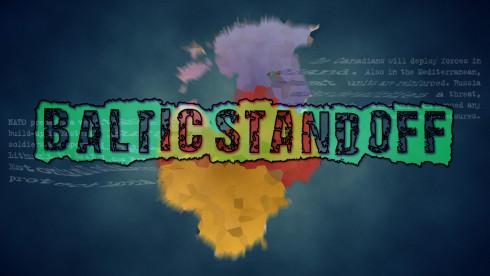
Illustrative Image
Baltic unity is cracking over Belarussian energy dispute
Written by Paul Antonopoulos, independent geopolitical analyst
Lithuania is unilaterally reducing the capacity of electricity networks at its border with Belarus. Using this dubious method, the country’s authorities are trying to block the “unsafe” Belarusian nuclear power plant (BelNPP) from providing energy. However, attempting to achieve this will not only be difficult, but Lithuanian decisionmakers in the capital of Vilnius risk engaging in a prolonged spat with Latvia and Estonia who rely on this energy source.
“Latvia will no longer distribute the same capacity that we have today, in its interconnection, thus increasing commercial trade […] The volume of this trade should be reduced to the amount that is technically available for trade between Russia and Latvia today – about 320 megawatts,” Renatas Pocius, Chairman of the Lithuanian Energy Regulatory Authority, said earlier this month.
Collective energy structures and connectivity between Belarus, Russia, Estonia, Latvia and Lithuania is under the BRELL format. The European Commission estimated in 2015 that any withdrawal from BRELL would cost €800 million, a cost that would likely be passed onto consumers. The cost analysis was made at a time when connecting the Baltic states to EU energy structures were in discussion.
At the time, Artūras Zaremba, the CEO of major Lithuanian company Akmenės Cementas, said: “From the technical standpoint, I am not sure it is possible to disconnect from BRELL, but from the commercial point of view: Why do it? If we can stay in both systems, we should stay in both. I would say energy independence and price are equally important.”
Therefore, Lithuania today cannot make the argument that their disconnect from Belarussian energy sources is because it is a response to the alleged electoral fraud during the 2020 Belarussian presidential election.
For several months the three former Soviet Baltic states have been trying to conclude a new agreement on electricity trade with third countries. It was revealed that neither Estonia or Latvia was unwilling to stop electricity imports from Belarus. In response, Lithuania accused its neighbors of being “blind” in relation to the BelNPP, also known as the Astravets Nuclear Power Plant. Although BelNPP is quite obviously in Belarus, it is only 40 kilometers east of Vilnius, therefore an obvious choice for Lithuania to get cheap energy.
Although Lithuania opposes BelNPP because of alleged safety concerns, it is more likely that this is part of the country’s campaign to be absorbed as much as possible into U.S. strategy and pressure campaigns against Russia and their close partners like Belarus. Lithuania is becoming increasingly frustrated as it cannot hold a full-fledged boycott until all Baltic countries leave the BRELL energy ring, something that appears unlikely.
It also appears that even Vilnius is realizing that they have isolated some of their closest partners, with Pocius saying last week that Latvia is going to lift restrictions on electricity imports from Russia in response to the recent decision of Vilnius to unilaterally reduce the capacity of power grids on the border with Belarus. In addition, according to Baltic News Service sources, Estonia is angered by Lithuania’s unilateral behavior as they are creating an energy crisis across the Baltics when winter is only around the corner.
“We have gone far enough to meet Lithuania halfway to limit the flow of Belarussian electricity to our market. We are ready to go even further, but the question arises as to where this line lies, as Russia may lose interest in [selling electricity to the Baltics], which then may be terminated,” said Taavi Aas, Estonian Minister of Economic Affairs and Communications, demonstrating the reality that the Baltics needs Belarussian and Russian energy.
Despite this urging, the three Baltic countries have not been able to reach a mutually beneficial agreement, and unlikely will do so, especially now that Lithuania has chosen to unilaterally adopt rules restricting Belarus’ electricity supply to the Baltic energy market.
It brings to question why Vilnius is insisting on this decision without coordinating with Latvia and Estonia, especially since differences over China are already breaking the close relationship between another partner of Lithuania – Poland.
It must be noted that electricity prices all across the European Union, including the Baltic states, are rapidly rising. Due to low gas reserves in underground storage facilities, mostly due to abnormal weather earlier this year and the West delaying the completion of Nord Stream 2, the heating season will be problematic for Europe, especially for the Baltic states after Lithuania suddenly decided to restrict Belarusian electricity imports.
This whole situation, despite Lithuania’s own major crises relating to the economy, health employment, demography and criminality, demonstrates that the country’s leaders are once again prioritizing the interests of the U.S. rather than their own citizens. With winter just weeks away and Lithuania experiencing a major economic crisis that is only being exacerbated by rising energy costs, it is highly unlikely that Lithuanians will care whether their energy source comes from Belarus or not, they will only care about affordability.




Time for reunification with russia
Seems to me like a Russian bear jiggling his erected penis around while the three sluts argue wherever they will suck him dry or not.
The lithuanian president was “educated” at goergetown university, with family living in the US. Enough said, another western puppet.